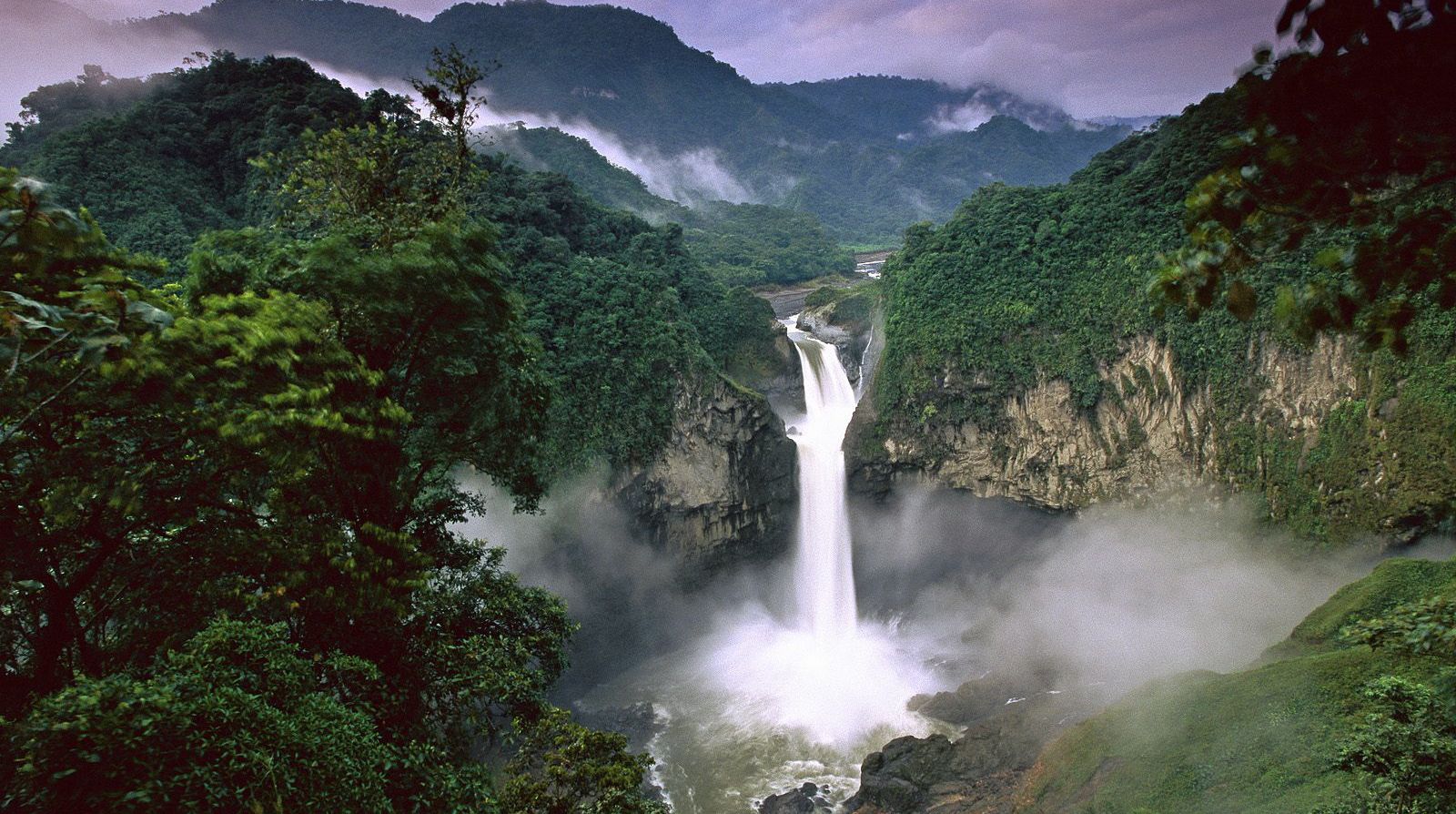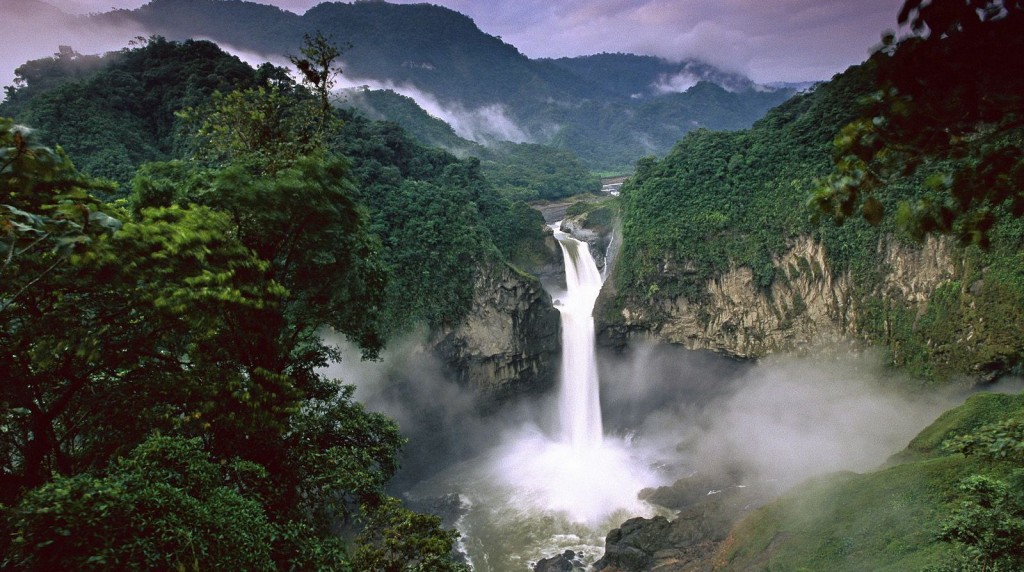
Ecuadorean poverty fight trumps Yasuní initiative

HAVANA – The path of the initiated can be obstructed by misunderstanding and indolence. Proof of this is Ecuadorean President Rafael Correa, who in 2007 dared to formulate at the United Nations a very advanced initiative: leave untouched the oil that lies under Yasuní National Park [in the Amazon rainforest] to help reduce the emission of gases that cause the greenhouse effect.
Although environmentalists in Europe and Ecuador itself campaign to protect the ecosystem from the unwise plunder now in progress, that extraordinary proposal did not elicit much applause. Maybe because the Andean president asked for some compensation in exchange, because his country is in no condition to give up a source of revenue.
In a special fund controlled by the U.N. Program for Development, governments and business corporations were to contribute $3.6 billion in 12 years. But in the six years since that proposal only .37 percent of that amount has been collected.
“The world has failed us,” Correa said, referring to the situation. “We need our natural resources to overcome poverty and misery. With great sadness, but also with total responsibility to my people and history, I’ve had to make one of the most difficult decisions of my administration. Today I signed an executive decree for the liquidation of the Yasuní ITT trust fund.” [ITT stands for Ishpingo-Tambococha-Tiputini, three regions involved.]
Waiting for Parliament to approve his decision, Correa explained that the project hopes to save that natural reserve (with the greatest biodiversity per kilometer/square in all of the Amazon) because only one-thousandth of the park would be exploited. With the proceeds, the country will obtain little more than $18 billion, which will be set aside for development, beginning with the development of communities within those very regions.
Ecuador maintains almost 60 percent of its geography as “protected soil,” a percentage that places it among the top sites in South America, above other nations that are larger and with greater economic potential. Correa’s vision is to maintain that status while considering that human beings – and their well-being – are part of nature.
It would certainly be very positive to prevent the emission of 400 million tons of carbon dioxide (generated by the combustion of the hydrocarbon, not by its extraction) into the atmosphere if the oil field is left untouched. It would be a favor to humanity, while the richer and more-polluting countries continue to poison the earth while breathing oxygen that’s generated in the Amazon rainforest, at no cost to them.
Correa’s administration has been applying what he calls a National Strategy for the Eradication of Poverty. It consists of providing people with drinking water and sanitation, total protection to the life cycle (i.e., medical care of every type), education (includes a monthly bonus to parents so they send their children to school, not to illegal jobs or mendicancy), improved universities, and other channels for economic inclusion and social promotion.
According to recent statements by Martín Hopenhayn, director of the CEPAL’s [Economic Commission for Latin America and the Caribbean] Division of Social Development, Ecuador ranks first in Latin America with respect to the reduction of inequalities and third in the reduction of poverty.
Other reports say that, as in previous years, the 2013 Annual Investments Plan contemplates the use of more than half that budget ($7 billion) for campaigns against poverty. These are some of the credentials that Correa’s cabinet can show to confirm the destination of possible new revenues.
When Correa and his followers initiated these transformations, Ecuador had spent 10 years in an economic and financial crisis, experiencing serious institutional instability. Today, with a growth rate of 4.3 percent, it ranks above the average in Latin America (3.5 percent), an advantage that reverts to its society while remaining on the margins of the neoliberal model (another virtue). These palpable peculiarities grant prestige to a nation that had lost its shine and give guarantees to eventual partners among the developed countries.
The conservative mindset of the president and his cabinet goes back to the early stages of his administration. In 2010, he set a ceiling for the production of oil (no more than half a million barrels per day), renegotiated contracts with foreign companies, raising the tax rates and dissuading them from conducting further searches. The project was not intended to terminate the main source of national income but to place it within ecologically permissible boundaries.
The area to be exploited will be small, 200 hectares in the million-hectare National Park. It will be worked on with top-of-the-line technology with minimum environmental impact and under constant observation. The Minister of the Environment, Lorena Tapia, guaranteed that the region will be controlled responsibly.
Opponents to this objective – some of whom are serious and convinced, others who are ill-intentioned and opportunistic – accuse the Ecuadorean government of conducting a policy of extraction. Correa has responded to that Byzantine discussion, saying that the fight against poverty is much too complex to be reduced to votes against or in favor of mining.
In my opinion, he said so because Ecuador is a poor country; like others of its kind, it cannot afford certain luxuries. Not long ago in Germany, Correa said that what his people need, in various places in Ecuador, are highways, job opportunities, food and education.
When he said that “the initiative was ahead of its time and [the international community] couldn’t, or wouldn’t, understand it” and that “the fundamental factor in its failure is that the world is a global hypocrisy,” Correa summarized a great many truths that the main culprits choose to ignore, while spouting balderdash.
What else can they do? Correa has majority support for his endeavor. And Ecuador is another country has taken the step to invite its compatriots abroad to return to their homeland. Hundreds and hundreds have already done so.
For other published reports on the Yasuni initiative, click below:
From Forges Magazine:
Yasuni in Ecuador Shows That Environmentalists Just Don’t Care About The Environment
From Britain’s The Guardian:
Ecuador approves Yasuni national park oil drilling in Amazon rainforest
https://www.youtube.com/watch?v=cr3oep32SzE&feature=player_embedded
Progreso Semanal/ Weekly authorizes the total or partial reproduction of the articles by its journalists, so long as source and author are identified.


